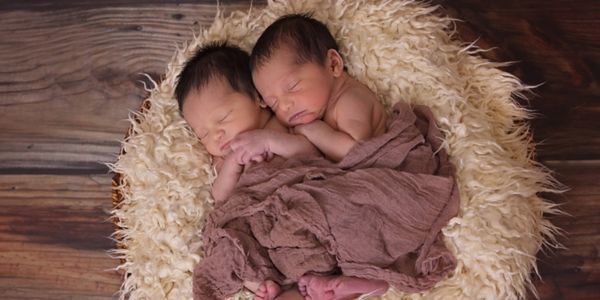

With the party season on the horizon, we’re taking a look at how breastfeeding impacts recommendations for drinking alcohol. We’re covering what you need to be aware of if you’re a nursing mum who would like to indulge in a tipple or two over Christmas and New Year.
And why are we writing this fact-based post for you? Drinking while breastfeeding can sometimes be a cause of confusion and debate. As such, we often see questions on the topic in the Bump, Baby and You Facebook community. Some mums mistakenly believe they need to avoid alcohol completely for the duration of breastfeeding, while others ask about pumping and dumping after drinking alcohol.
Got a few nights out coming up? Want to know if you can still enjoy your annual bucks fizz breakfast or prosecco toast on Christmas Day? Read on! Today we’re answering your alcohol and breastfeeding questions. We’re using the official guidance on alcohol and nursing from the Breastfeeding Network , the NHS and Start4Life drinking alcohol guidelines. We’ve also got advice from breastfeeding expert and internationally-qualified lactation consultant, Shel Banks (IBCLC).
Can You Drink Alcohol Whilst Breastfeeding?
The short answer is, yes. Breastfeeding, combi-feeding and exclusively pumping mums can drink alcohol. That is, providing you take a sensible approach to how much and how regularly you drink.
The guidance from the Breastfeeding Network states mums “can have occasional, small amounts of alcohol”. It’s important to be aware that newborns under the age of three months have very immature livers. So, if your baby is very young you’ll want to be a little more planned and cautious in your approach to enjoying a glass. Guidance states that whatever age a baby is, mums “should not drink regularly or heavily” (e.g. binge drinking) “without considering how to limit the baby’s resulting exposure to some alcohol through milk”. So what does that mean when it comes to your festive glass of fizz?
If you fancy a small glass of wine, you can go right ahead. In fact, if you time it well, your bloodstream and therefore your breastmilk could be completely free of alcohol before baby’s next feed. Those planning a night out away from baby or a slightly heavier drinking session have a few extra things to consider. Firstly, you’ll need to ensure baby happily takes a bottle (or sippy cup for older babies) if you’ll be missing a feed or more while away. You’ll also need to ensure they’re left with enough expressed milk (generally 1-1.5oz per hour).
Heading to a Christmas party and planning to consume a couple of glasses of alcohol or more? Stopping drinking a few hours before you know you’ll be feeding baby will allow some of the alcohol to clear your system (see below for timings). You could choose to pump and leave extra milk to cover the time period until your milk should be completely clear of alcohol, but this isn’t strictly necessary.
The Giovanna Fletcher Instagram Debate
Back in October, author Giovanna Fletcher posted an image of herself on Instagram enjoying a small glass of wine whilst using her breast pump. And as happens so often with social media, debate followed.
Gi’s photo was met with a mixed response, despite her explaining that her newborn, Max, wasn’t expected to wake up and ask for a feed for several hours. She also told followers that she had expressed milk in the freezer if this occurred. And as Giovanna rightly explained, alcohol doesn’t go straight into breastmilk when you drink it. This means that the milk she was pumping wouldn’t contain alcohol.
As part of the resulting debate, Shel Banks, IBCLC, appeared on BBC Breakfast to discuss up to date advice on breastfeeding and alcohol consumption. Shel confirmed that because of the way alcohol works in the blood, the amount that’s present in breastmilk after a mum drinks alcohol would usually be a very tiny amount. In fact, if the mother was to have an alcohol level of above 0.08 per cent – the legal drink drive limit – the most immediate danger would be the same as that of a father who had been heavily drinking was left in charge of a baby. That is of course the risk of dropping the baby or a similar accident taking place. Plus, sharing a bed is a real no go.
We spoke to Shel to get the facts for Bump, Baby & You. She said:
“We need to give mums a break with regards to sensible consumption of alcohol and breastfeeding. If a breastfeeding mum wants to have a glass of mulled wine or a bucks fizz over the festive period, the NHS guidelines are quite clear that drinking in moderation is fine. Confusion often arises because drinking in pregnancy is a real no-no but by declaring alcohol totally off limits for the duration of nursing, we do mums a great disservice. All parents should ensure that if they’re drinking, there’s someone sober on hand to safely care for baby. Ultimately, many breastfeeding mums can and do drink alcohol responsibly and don’t need to opt out of social occasions.”
How Long After Drinking Can I Breastfeed?
We know that peak alcohol levels in breastmilk usually occur around 30-90 minutes after drinking. Even then, the alcohol level in a mother’s bloodstream will be significantly lower than the alcohol that they have consumed. In debates online, Canadian Paediatrician, Dr Jack Newman is often quoted as stating that the amount of alcohol reaching baby after a mum has drunk alcohol is akin to a shot in a swimming pool However, it should be noted that this anecdote is based on non-peer reviewed testing by one mother rather than official research by Dr Newman.
Experts do suggest that mums would have to drink at potentially deadly levels for the breastmilk to reach alcohol levels no greater than those attached to non-alcoholic beers. We know that alcohol clears from breastmilk in the same time period it clears blood, since it flows freely from one to the other. This means that depending on how much alcohol you’ve consumed, avoiding breastfeeding for two to three hours after stopping drinking will help to reduce your baby’s exposure. As a general calculation, the body will clear one unit of alcohol per hour. There is of course some variation for your weight, height, liver function and what you’ve eaten, so it’s not an exact calculation.

What Is The Recommended Number of Units Of Alcohol Per Week When Breastfeeding?
Current NHS guidelines recommend that breastfeeding mums usually stick to drinking 1-2 units of alcohol per week. So, what does this look like?
- A small glass of wine at 125ml is around 1.5 units
- A small glass of bucks fizz (4%) is 0.5 units for 125ml
- A large glass of wine at 175ml wine is around 2 units
- A small gin and tonic with 25ml of spirits is around 1 unit
Do You Need to Pump And Dump Breast Milk If Drinking Alcohol?
If you’re going to miss a feed while you’re away from baby, it’s safest to pump to avoid health issues such as blocked ducts or mastitis and to maintain your supply level. However, there’s no need to pump and dump the milk to clean your breast milk as time will do this for you. This is because breastmilk, like blood, continually renews. As your blood alcohol levels fall, the level of alcohol in the breast milk will decrease and so will ‘clean’ itself.
What Are The Effects And Risks Of Drinking Alcohol While Breastfeeding?
The potential impact of drinking while pregnant is well known but the effects of drinking alcohol while breastfeeding or risks of excessively drinking while feeding are often misunderstood. As above, the primary issue with binge drinking (consuming more than five units in one session) is that you are less aware of baby’s needs and likely to be less capable of caring for them too.
If you’re planning to drink heavily, it’s essential to have another sober adult to care for baby. You should never put yourself in a situation where you might fall asleep with baby on a sofa, chair or bed while drunk either. Sharing a bed or falling asleep while holding baby after drinking alcohol massively increases the risk of sudden infant death syndrome (SIDS).
The Breastfeeding Network states there is a reduction in letdown when a mother drinks a lot. However, according to the Breastfeeding Network your alcohol level would need to be above the failure point for the UK drink drive limit (80mg/100ml) before mild sedation of baby occurs at an alcohol blood level of 300mg/100ml.
If a mother is a chronic everyday consumer of alcohol, this does pose greater risks to baby and could impact on development. For those simply wishing to have a glass or two to toast festivities, a tiny amount will be passed through to baby and is unlikely to harm them but could impact how easily they feed. The Breastfeeding Network’s fact sheet on alcohol (linked above) states that when a mother has consumed alcohol it “may reduce the baby’s sucking time at the breast but not the volume of milk consumed”.
Will you be enjoying a few glasses over the festive season? If you’ve got any further questions about alcohol and breastfeeding, you can call the National Breastfeeding Helpline on 0300 100 0212.



.png)






.jpg)




